What’s the Difference Between CBD Derived From Hemp and Cannabis?
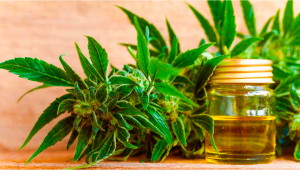
- 1. Differentiating what is hemp and what is cannabis
- 2. Hemp cbd vs cannabis cbd
- 3. The visual aspect of hemp vs cannabis
- 3. a. Cannabis vs hemp resin
- 4. Do the effects of hemp & cannabis cbd change?
- 5. The legal status: the main difference between hemp & cannabis cbd
- 6. The bottom line
Ever since more and more countries started legalizing the use of marijuana for medical purposes, there was an increased interest in the use of cannabis for treating many different health conditions, from slight pain to treating chronic illnesses.
The options when it comes to marijuana are wide, every single person is likely to find exactly what they need and seek to get from this magic plant and its varieties, both in the strains and methods of administration wise.
Most of the time, when it comes to medical marijuana, what people are interested in is CBD, cannabidiol, the cannabinoid in the weed family that provides many health benefits and doesn't cause the typical cannabis high, which is produced by THC.
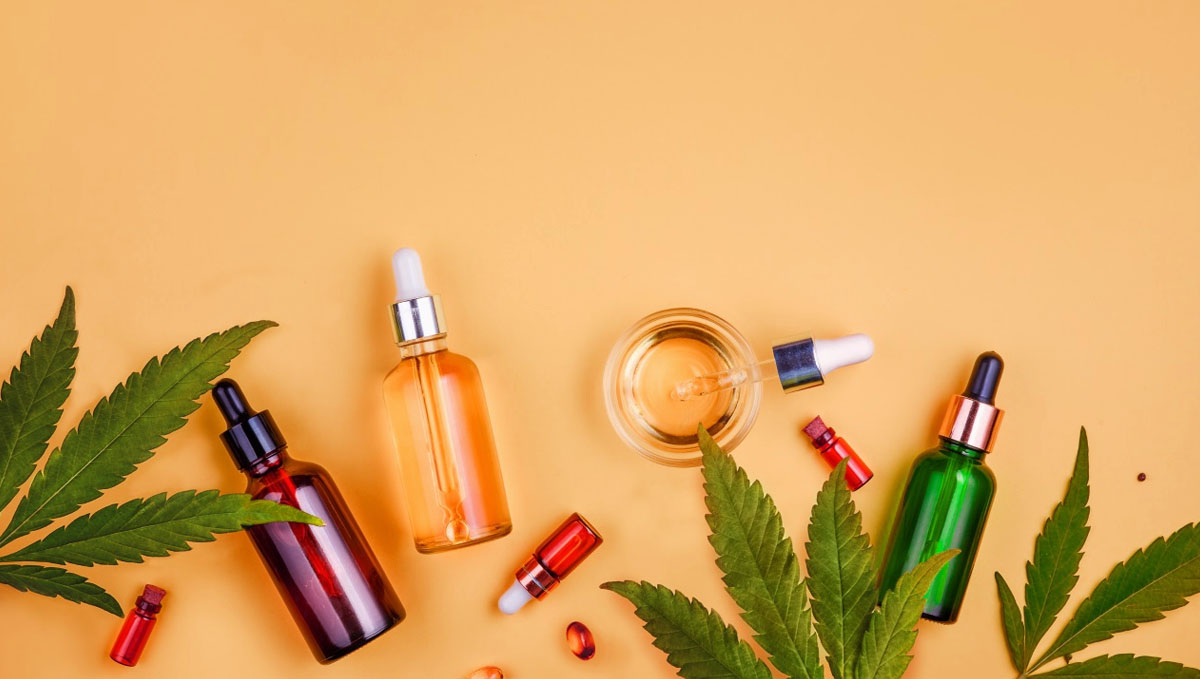
However, you can get CBD from both hemp or marijuana plants, and while many people could think that these two are exactly the same thing, they actually aren't, and there are a couple of differences between them related to quantity: generally speaking, CBD products derived from hemp contain CBD only and in fewer amounts than those made of cannabis.
1. Differentiating What Is Hemp and What Is Cannabis
In order to analyze the difference between CBD derived from hemp and cannabis, we'll first need to explain what each of these two are. Hemp, on one hand, is the term used to refer to those marijuana plants that contain less than 0.3% of THC. This means that hemp is a type of marijuana.
Cannabis, for its part, can be two things: all of the group of marijuana plants that produce buds; or, as people normally refer to it, the ones that give you the feelings of a weed high, this means, higher THC rates.
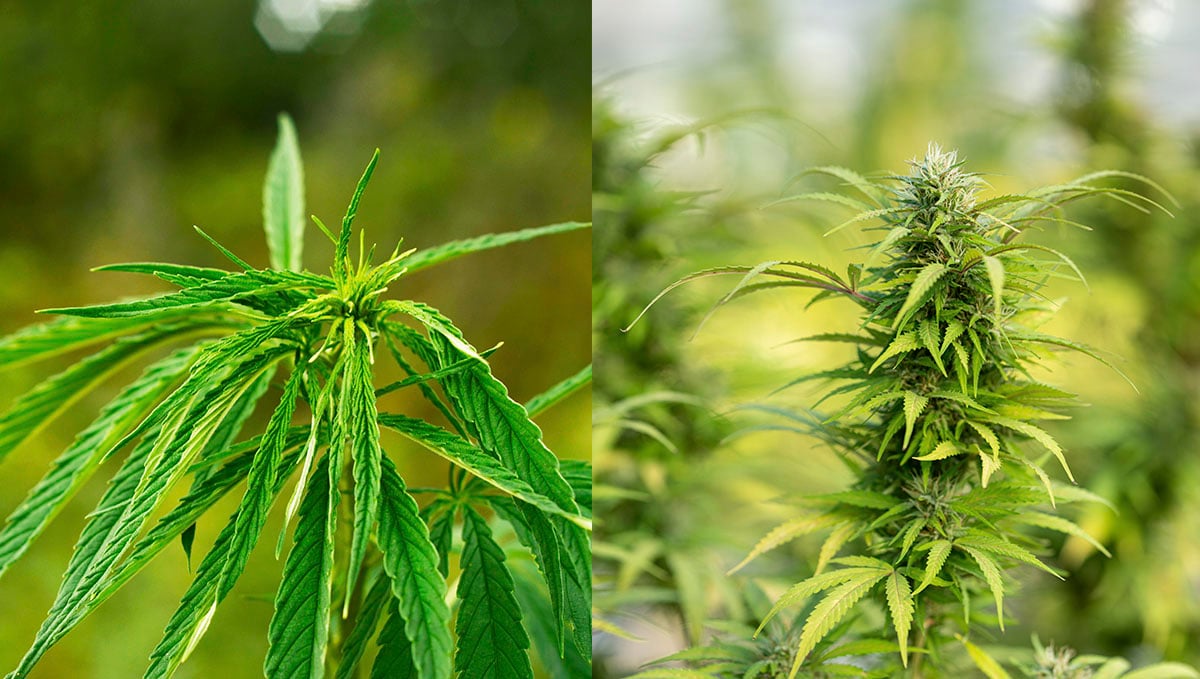
Hemp, or industrial hemp, is a variety of Cannabis Sativa that has been cultivated for hundreds of years, for many uses, such as making rope, clothing, sailing equipment, food, medicine, and much more. 1
Marijuana plants, the ones that are psychoactive, can be distinguished into three categories: Cannabis Indica, Cannabis Sativa, and hybrids, and each of these come with their own different scheme of properties and effects.
2. Hemp CBD vs Cannabis CBD
Both cannabis and hemp plants contain some amounts of THC and CBD, along with other cannabinoids, terpenes and more than 1000 other compounds. So what's the difference? As we've mentioned before, it's the amounts of these compounds. 2
In summary, you'll find high amounts of THC but lower CBD in cannabis plants. And vice versa, hemp plants contain high rates of CBD and almost no THC. But this changes over time; a study led in 2016 found that cannabis plants' THC has been growing. 3
Back in 1995, the THC content was of 4%, while nowadays we can find strains with more than 27% of THC, such as our strain Gorilla Cookies Auto. At the same time, this study found that the CBD levels lowered from 0.28% in 2001 to less than 0.15% in 2014.
3. The Visual Aspect of Hemp vs Cannabis
One big difference between hemp and cannabis plants resides in the way they look. Hemp plants, on one side, tend to look skinny, tall and with not so many plants, a.k.a. foliage.
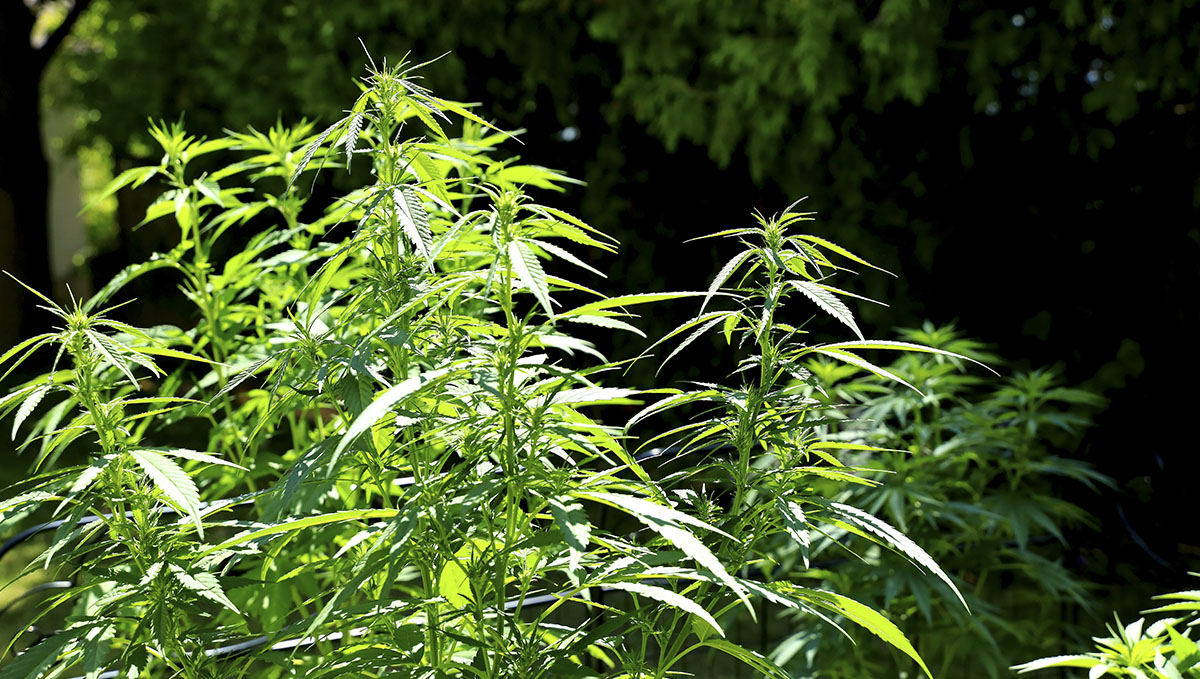
Cannabis plants, on the other hand, tend to be thicker, with a leafy aspect. But not all strains will look the same. Indica plants are usually dark green, short and dense, and their leaves are wider and not so long. Sativas are exactly the opposite, they are a lighter green color, tall and leaner, and their leaves are thinner, pointy, and longer.
There are a couple of other differences between these two, such as the resin content.
Cannabis vs Hemp Resin
One crucial difference between hemp and cannabis-derived CBD is the amounts of resin found in each plant. Resin is found among the trichomes of marijuana plants' buds, those shiny, mushroom-shaped glands in the flowers that you can see through a macro lens. Fewer amounts of resin can also be found on the leaves.
Cannabis plants are the ones that usually contain vast amounts of resin, and hemp, or industrial hemp plants contain notoriously less resin. This being said, cannabis is a better, more abundant source of CBD when compared to hemp. CBD oil extracted from hemp plants require more quantities of plant matter to reach the same amounts achieved with cannabis plants.
However, there is always an exception to the rule. There are some newer varieties of craft hemp that are producing unusual, high concentrations of CBD that measure between 12% and 20% of CBD and 0.3% or less THC.
4. Do The Effects of Hemp & Cannabis CBD Change?
On a molecular level, CBD extracted from either cannabis or hemp plants stays the same. This said, we could therefore state that the effects of CBD will be the same as well, no matter whether they come from cannabis or hemp plants.
Both hemp-derived CBD and cannabis-derived CBD produce similar side effects, which include:
- Feeling tired;
- Feeling on edge;
- And producing an upset stomach.
However, when it comes to the positive effects provided by CBD, the combination of this cannabinoid along with THC brings more benefits than the ones of CBD alone. This means that cannabis can produce a greater amount of effects than hemp.
| CBD's Properties and Side Effects | THC Properties and Side Effects |
|---|---|
| Non-psychoactive. | Psychoactive. |
|
Reduces inflammation; alleviates pain; reduces seizures; acts as an anti-psychotic and neuro-protector; it's an antioxidant and anti-tumor. Upset stomach. |
Relaxant, sedative; stimulates the appetite; acts as an analgesic; reduces drowsiness; anti-depressant. Can produce euphoria, paranoia, or anxiety. |
In order to make the most out of your medical cannabis, you should first find the strain that suits your needs first. Consult with your doctor about which effects you're looking to get, and with cannabis experts to find the strain that fits these needs.
Take into consideration that, although CBD provides some effects, it's the combination of it with other compounds such as terpenes, which, all together create the effects. Learn about the properties of each type of terpene if you want an accurate use of your weed.
5. The Legal Status: The Main Difference Between Hemp & Cannabis CBD
One of the biggest differences between cannabis and hemp CBD lies in the legal status of products derived from them. Since hemp doesn't produce any psychoactive effects, it can't really be prohibited. Cannabis in the meantime does, so some countries consider it as a drug.
Hemp has been decriminalized a couple of years ago, and any product derived from this type of marijuana plant can be legally commercialized, while we can't say the same for cannabis CBD.

This is because some of the cannabis-CBD-derived products also contain some amounts of THC, and, depending on the country of residence, products with only 0.3% of THC are allowed to be commercialized. This means that if the cannabis-CBD product contains less than 0.3% of THC, it could still be sold, again depending on the country.
To get stronger CBD products, most likely you'll need ones that require a medical prescription, and they'll likely have higher amounts of THC, which will get you high, so make sure you're aware of that.
Anyway, if you live in a country where the use of marijuana is completely decriminalized, for both recreational and medical use, then there should be nothing you need to worry about more than your personal necessities.
6. The Bottom Line
Cannabis is a full-spectrum plant that can target many different problems at the same time. And while this is a positive trait for sure, it can be a tad overwhelming when you have to decide which strains to cultivate since they are all so great.
It's essential to do some research, ask friends or experts, and test out for yourself what works and what doesn't. You'll be able to find what you're looking for faster if you investigate well enough.
However, since no one ever died from cannabis consumption, there's no need to worry if you feel like trying out different strains and methods of consumption until you finally find what feels right.
MEDICAL DISCLAIMER
This content is for educational purposes only. The information provided is derived from research gathered from external sources.
EXTERNAL REFERENCES
- "The Seed of Industrial Hemp (Cannabis sativa L.): Nutritional Quality and Potential Functionality for Human Health and Nutrition" Barbara Farinon, Romina Molinari, Lara Costantini, and Nicolò Merendino. July 2020.
- "Cannabis sativa: The Plant of the Thousand and One Molecules" Christelle M. Andre, Jean-Francois Hausman, and Gea Guerriero. February 2014.
- "Changes in Cannabis Potency Over the Last 2 Decades (1995-2014): Analysis of Current Data in the United States" Mahmoud A. ElSohly, Zlatko Mehmedic, Susan Foster, Chandrani Gon, Suman Chandra, and James C. Church. April 2016.








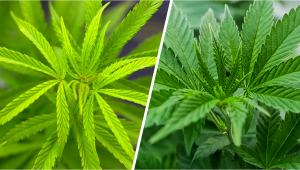



Comments